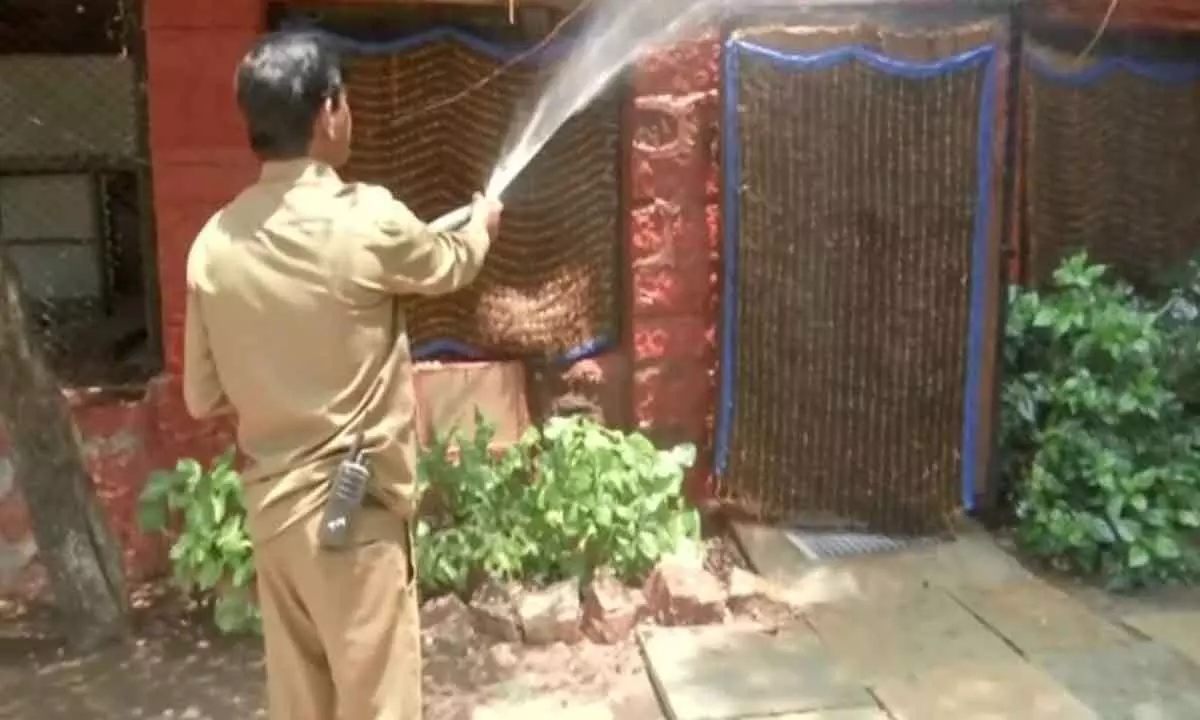Nehru zoo braces for scorching days ahead

With the increasing rise in temperature, the Nehru Zoological Parkauthorities have taken up precautionary measures to protect hundreds of wild animals, birds and reptiles from the scorching sun
Hyderabad: With the increasing rise in temperature, the Nehru Zoological Parkauthorities have taken up precautionary measures to protect hundreds of wild animals, birds and reptiles from the scorching sun.
As the city has been sizzling under soaring day time temperatures, the authorities geared up with special arrangements to protect around 181 species of animals from the sweltering heat. According to authorities, arrangements for summer was taken up from the third week of February which would continue till mid-June.
"To protect animals from dehydration and falling sick due to the parching summer heat, we initiated the summer protocol for animals. Sprinklers, foggers and coolers at enclosures have been installed to help protect the animals from heat. In addition to the regular diet, the inhabitants of the zoo are being provided with vitamin C rich foods, watermelon, musk melon and coconut water," said S Rajashekar, Curator Nehru Zoological park.
"We have also taken up the cooling methods before the start of the summer season in mid-February and these methods will be put in place for next four months. The precautionary measures are being taken to avoid sunstroke and summer stress to the animals," he added.
As part of the measures, air coolers are being set up in the animal enclosures for monkeys, tigers, lions, jaguars and leopards along with air-conditioners and exhaust fans installed in the nocturnal animal house.
"Mist sprayers, sprinklers and small rain guns have been installed in all enclosures and animals can cool themselves under these measures," he said.
Glucon-D, vitamin-C and B-complex supplements are mixed in the diet and provided to ensure the animals are protected from summer stress.
The enclosures have been covered with KashkashThattis including windows, ventilators and doors. Watering will be done every two hours on the KashkashThattis and thunga grass.
Herbivorous animals are being protected by shady shelters. Moreover, all animal keepers, park supervisors take up preventive steps and the veterinary doctors are monitoring the health condition of the animals thrice in a day.















